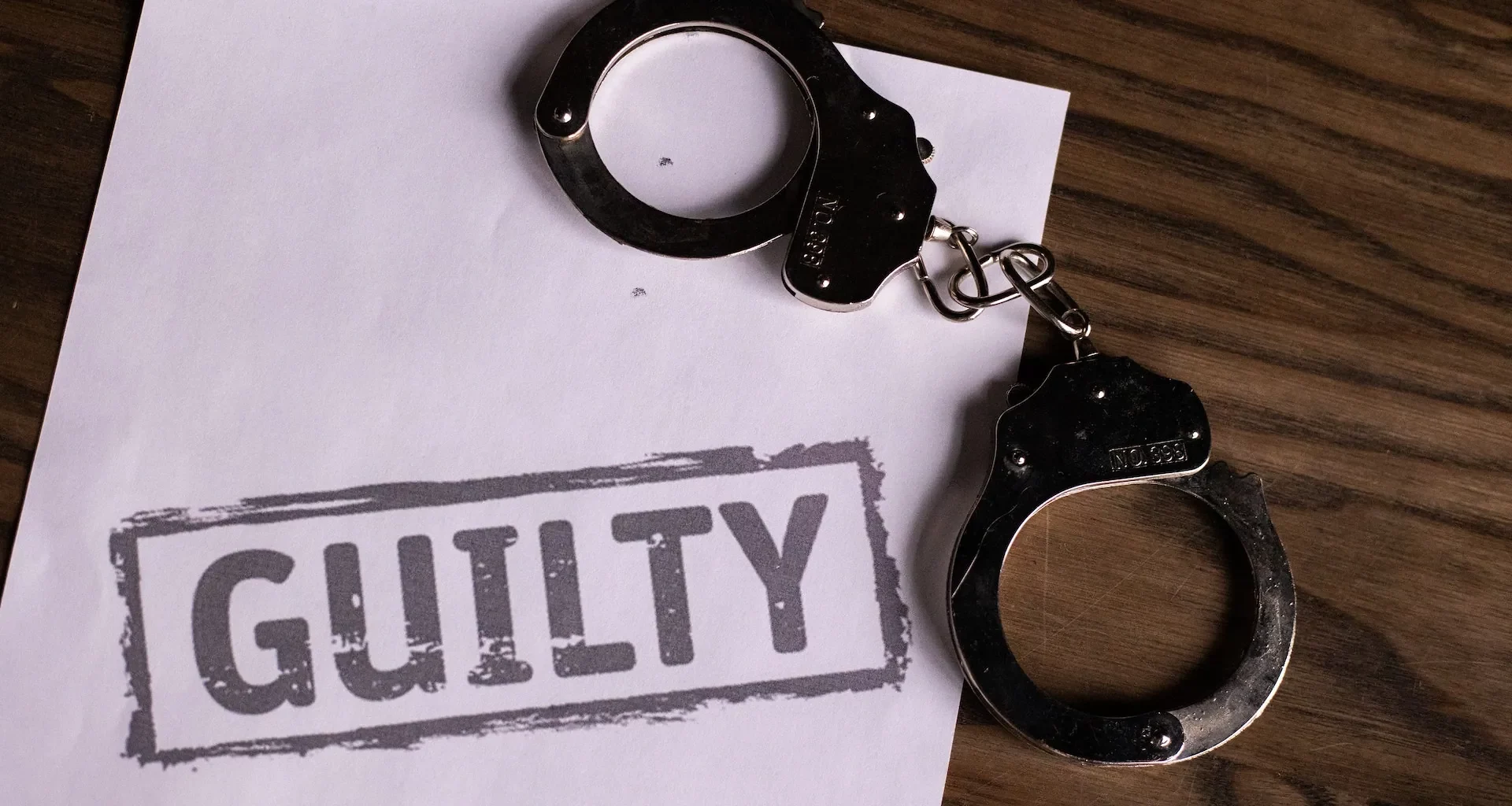Kleptomania, often cloaked in secrecy and shame, is far more than mere theft—it’s a complex mental health disorder that pushes individuals into an uncontrollable urge to steal. At first glance, the act might seem like straightforward larceny, but for those grappling with kleptomania, the thefts aren’t fueled by need or greed, but by a compulsion that can be as baffling to them as it is to those around them. In “How to Deal with Kleptomania: The Hidden Struggle Behind Impulsive Theft”, we delve deep into the enigmatic world of this disorder, shedding light on its origins, its emotional repercussions, and the promising paths toward management and recovery. Whether you or a loved one is affected, understanding kleptomania is the first step towards overcoming its challenges.
Table of Contents
- Understanding Kleptomania: Beyond Simple Theft
- The Brain and Kleptomania: A Neurological Perspective
- Triggers and Risk Factors: Why Some People Develop the Disorder
- The Emotional Toll: Shame, Guilt, and Isolation
- Comorbid Conditions: When Kleptomania Coexists with Other Disorders
- Navigating Treatment Options: From Therapy to Medication
- Support Systems: The Role of Family and Friends in Recovery
- Legal Implications: Navigating the Justice System with Kleptomania
- Self-help Strategies: Daily Routines and Coping Mechanisms
- Hope and Recovery: Stories from Those Who’ve Overcome the Urge
- Frequently Asked Questions

Understanding Kleptomania: Beyond Simple Theft
Unmasking the Impulse
For many, the act of stealing may seem like a calculated, malicious intent or a desperate move driven by need. But kleptomania tells a different story. It’s an intricate mental health disorder, pushing individuals to steal not out of necessity or greed, but due to an unrelenting inner compulsion.
Brain Chemistry and Kleptomania
Kleptomania isn’t just a mere whim; it has its roots deep within the neural circuits. A groundbreaking study demonstrated abnormal neurotransmitter activity in kleptomaniacs, suggesting that disruptions in the brain’s reward systems might play a pivotal role in this impulsive behavior.
The Emotional Landscape of Kleptomania
Individuals with kleptomania don’t just deal with the act of theft but also the tidal wave of emotions that follow – guilt, shame, relief, and anxiety. This emotional turmoil is a significant distinction from planned theft. According to a study, many kleptomaniacs experience heightened anxiety and depression levels, making it paramount to approach the disorder with a compassionate, understanding lens.
A Call for Empathy
To truly address kleptomania, society must move past the narrow lens of criminality and delve deeper into the underlying complexities of the condition. With understanding and the right interventions, there’s hope for individuals to navigate and conquer their impulses.
The Brain and Kleptomania: A Neurological Perspective
Rooted in the Brain
Often perceived as a mere behavioral issue, kleptomania goes deeper than that, being profoundly rooted in the neural pathways of the brain. It’s not just a desire or mere impulsiveness; it’s a compulsion driven by specific neurological circuits.
Neurotransmitters and Impulse Control
Certain neurotransmitters in the brain, such as serotonin and dopamine, play pivotal roles in mood regulation and impulse control. In a groundbreaking study, imbalances in these neurotransmitters were observed in individuals diagnosed with kleptomania. Such imbalances might explain the uncontrollable urge to steal, even when there’s no need or purpose behind the act.
Brain Structures and Their Roles
Not just neurotransmitters, specific brain structures too can influence kleptomanic behavior. The amygdala, involved in emotion processing, and the prefrontal cortex, responsible for decision-making, have both been implicated. Harris & Thompson (2018) highlighted structural anomalies in these regions among kleptomania patients, suggesting a neurological basis for their uncontrollable urges.
Towards a Comprehensive Understanding
By delving deep into the neurological underpinnings of kleptomania, we can foster better empathy, more effective treatments, and a holistic understanding of those grappling with this condition.
Triggers and Risk Factors: Why Some People Develop the Disorder
Kleptomania, an irresistible urge to steal items not needed for personal use or value, is not merely a product of moral failing or personal whim. Delving into the triggers and risk factors provides a more comprehensive understanding of its complex origins.
Emotional Triggers
Often, emotional upheavals act as precursors for the kleptomanic episodes. Feelings of tension or emotional arousal precede the act of stealing, and a sense of gratification or relief is experienced afterward. According to a study, emotional triggers such as anxiety, loneliness, and rejection significantly amplify the risk of kleptomanic episodes.
Biological and Genetic Factors
While environment plays a role, the biological makeup cannot be overlooked. Some individuals might have a genetic predisposition, making them more susceptible. A pivotal study found that first-degree relatives of those with kleptomania have a heightened risk, pointing to possible genetic factors.
Coexisting Mental Health Issues
Kleptomania doesn’t always stand alone. It often coexists with other mood disorders, substance abuse, or anxiety disorders. Such comorbidity can compound the risk and further muddle the treatment landscape.
Towards Prevention and Early Intervention
Understanding the triggers and risk factors isn’t just about explaining the disorder; it’s about paving the way for early detection, prevention, and more targeted interventions.
The Emotional Toll: Shame, Guilt, and Isolation
Beyond the Act of Theft
Kleptomania isn’t merely an act of theft; it’s a profound internal struggle that wreaks emotional havoc on the individual. While the impulse to steal may be front and center, the emotional aftermath often remains unspoken, yet it’s just as critical.
Shame and Self-Loathing
For those battling kleptomania, the act of stealing is often followed by a wave of shame. They recognize the incongruence between their actions and societal norms. In a study, participants reported a cyclical pattern of theft followed by intense self-loathing, only to engage in the act again as a flawed coping mechanism.
Guilt and Relationships
It’s not just the internal shame; there’s an external dimension too. Guilt about the consequences on loved ones and the potential harm to innocent parties can weigh heavily. A study found that kleptomaniacs often go to great lengths to hide their actions from close family and friends for fear of judgment or causing harm.
Isolation: A Double-Edged Sword
The fear of being found out can push individuals into isolation. On one hand, isolation can act as a protection mechanism, keeping the secret hidden. But on the other, it also denies them the emotional support necessary for recovery.
Breaking the Silence
Understanding the emotional toll is the first step towards offering the right help and support. By shedding light on the often overshadowed emotions of shame, guilt, and loneliness, we can foster a more compassionate and holistic approach to healing.
Comorbid Conditions: When Kleptomania Coexists with Other Disorders
Kleptomania, characterized by the irresistible urge to steal items not needed for personal use, is often not an isolated challenge. Like many mental health disorders, kleptomania sometimes exists alongside other conditions, adding complexity to both diagnosis and treatment.
Depression and Kleptomania
Depression, with its spectrum of symptoms from persistent sadness to a lack of interest in daily activities, is a frequent companion to kleptomania. A sudy found that a significant portion of individuals with kleptomania also showed clinical symptoms of major depressive disorder, suggesting an intricate interplay between the disorders.
Anxiety Disorders: Another Piece of the Puzzle
While the act of stealing in kleptomania can sometimes offer temporary relief from internal turmoil, it can also be a source of heightened anxiety. Many individuals fear getting caught or facing the consequences of their actions. A study highlighted that almost half of their kleptomania participants also met the criteria for generalized anxiety disorder.
Substance Abuse: A Dangerous Path
There’s also evidence to suggest that some individuals with kleptomania turn to substances, be it alcohol or drugs, to cope with their emotional distress, further complicating their situation and health outcomes.
Holistic Care and Understanding
Recognizing the comorbidities associated with kleptomania is paramount. Only by acknowledging the full spectrum of challenges can clinicians, caregivers, and the individuals themselves work towards holistic well-being.
Kleptomania, characterized by the irresistible urge to steal items not needed for personal use, is often not an isolated challenge. Like many mental health disorders, kleptomania sometimes exists alongside other conditions, adding complexity to both diagnosis and treatment.
Navigating Treatment Options: From Therapy to Medication
Dealing with kleptomania, an impulse control disorder characterized by recurrent theft of items that hold little to no personal value, can be a challenging journey. While understanding the psychological underpinnings of this condition is crucial, identifying effective treatment strategies is equally important. This article explores the diverse treatment options available for individuals struggling with kleptomania.
1. The Role of Psychotherapy
Psychotherapy, particularly cognitive-behavioral therapy (CBT), is a cornerstone in the treatment of kleptomania. CBT focuses on identifying triggers, recognizing thought patterns, and developing coping mechanisms to manage impulsive urges. Through CBT, individuals learn to replace compulsive behaviors with healthier alternatives, fostering self-awareness and impulse control.
2. Dialectical Behavior Therapy (DBT)
DBT is another therapeutic approach that can be beneficial for individuals with kleptomania. It emphasizes mindfulness, emotion regulation, distress tolerance, and interpersonal effectiveness. By enhancing emotional management and communication skills, DBT equips individuals to navigate the underlying emotional factors driving their impulsive behavior.
3. Medication as a Complementary Approach
In certain cases, medication can be a valuable component of the treatment plan for kleptomania. Selective serotonin reuptake inhibitors (SSRIs), commonly prescribed for mood disorders, have shown efficacy in reducing the frequency and intensity of impulsive urges. These medications can help address the underlying neurochemical imbalances that contribute to the disorder.
Studies Supporting Treatment Options:
A study examined the efficacy of naltrexone, an opioid receptor antagonist, in the treatment of kleptomania. Results indicated that naltrexone was associated with a significant reduction in symptoms, suggesting its potential as an adjunct to psychotherapy.
Research explored the effectiveness of CBT in treating kleptomania. The study revealed that individuals who received CBT experienced significant improvements in impulse control and a decrease in theft-related behaviors, underscoring the benefits of psychotherapy in addressing kleptomania.
The journey of overcoming kleptomania involves a multifaceted approach that combines psychotherapy, such as CBT and DBT, with the potential inclusion of medication. By navigating the spectrum of treatment options, individuals can find a tailored approach that addresses their unique struggles, providing them with the tools to regain control over their impulses and lead a healthier, more fulfilling life.
Support Systems: The Role of Family and Friends in Recovery
Kleptomania, an impulse control disorder characterized by compulsive theft, not only affects the individual but also resonates with their close family and friends. Understanding the pivotal role that support systems play in the recovery journey of those grappling with kleptomania is crucial. This article delves into the significance of family and friends as a source of encouragement and aid during the recovery process.
1. Fostering Open Communication
Family and friends can serve as a safe space for open dialogue about kleptomania. Creating an environment where individuals feel comfortable sharing their struggles, triggers, and progress is essential. Open communication not only reduces isolation but also promotes a sense of understanding and empathy among loved ones.
2. Providing Emotional Support
The emotional toll of kleptomania can be overwhelming. Family and friends can offer invaluable emotional support by actively listening, offering nonjudgmental understanding, and demonstrating empathy. Knowing that they are not alone in their battle can significantly alleviate the emotional burden individuals face.
3. Encouraging Treatment Seeking
Loved ones can play a pivotal role in encouraging individuals to seek professional help. Gently discussing the benefits of therapy, counseling, and other treatment options can help individuals overcome the initial hesitation to seek assistance. Assuring them that seeking help is a sign of strength can motivate them to take the necessary steps towards recovery.
Studies Supporting the Importance of Support Systems:
The research highlighted the positive influence of family involvement in the treatment of impulse control disorders. The study found that family therapy significantly reduced symptoms and improved overall functioning in individuals with kleptomania.
In a study it was observed that individuals with kleptomania who had a strong support system were more likely to engage in treatment and experience improved outcomes. The study emphasized the correlation between family support and better treatment adherence.
Family and friends have a profound impact on the recovery journey of individuals grappling with kleptomania. By fostering open communication, providing emotional support, and encouraging treatment-seeking, loved ones can create a foundation of care and understanding that aids in the path to recovery. Their unwavering support can empower individuals to confront their struggles, seek professional help, and ultimately regain control over their impulses.
Legal Implications: Navigating the Justice System with Kleptomania
Kleptomania, a complex impulse control disorder characterized by recurrent and uncontrollable urges to steal, can often lead to legal consequences. Navigating the justice system with an understanding of the underlying psychological factors is crucial in ensuring fair treatment for individuals struggling with this hidden struggle. This article sheds light on the legal implications faced by individuals with kleptomania and explores the challenges they encounter within the justice system.
1. The Complex Interaction
Kleptomania’s impulsive nature can often lead individuals to commit theft without the intention to gain or profit. This complexity poses a challenge within the justice system, as traditional legal frameworks may struggle to differentiate between criminal intent and the compulsive nature of kleptomania.
2. Criminalization vs. Mental Health
The justice system’s approach to kleptomania varies widely, from criminal charges to diversion programs focusing on mental health treatment. While some jurisdictions may understand the underlying psychological factors, others may inadvertently criminalize individuals suffering from a genuine disorder.
3. Need for Education and Advocacy
Raising awareness among legal professionals about kleptomania’s distinct characteristics is essential. Training judges, lawyers, and law enforcement personnel to recognize the signs and symptoms of the disorder can help ensure a fair and compassionate approach to cases involving individuals with kleptomania.
Studies Supporting the Legal Implications of Kleptomania:
A study highlighted the need for a more nuanced legal approach to kleptomania. The study found that individuals with kleptomania often experienced legal difficulties due to their impulsive behaviors and that legal penalties might not address the underlying disorder effectively.
In a more recent study, it was observed that individuals with kleptomania had higher rates of arrest and legal problems. The study emphasized the importance of considering the psychological aspects of kleptomania when addressing legal implications.
Addressing the legal implications of kleptomania requires a delicate balance between recognizing the compulsive nature of the disorder and upholding legal standards. Educating legal professionals about the distinctive features of kleptomania and advocating for diversion programs that prioritize mental health treatment can help bridge the gap between the justice system and individuals struggling with this hidden psychological struggle.
Self-help Strategies: Daily Routines and Coping Mechanisms
Dealing with kleptomania, an impulse control disorder characterized by impulsive theft, can be a challenging journey. While seeking professional help is crucial, individuals can also benefit from incorporating self-help strategies into their daily routines to manage their urges and enhance their overall well-being. This article delves into effective self-help strategies and coping mechanisms that can empower individuals to navigate the hidden struggle of kleptomania.
1. Creating Structured Daily Routines
Establishing a structured daily routine can provide a sense of stability and control. By scheduling activities, setting goals, and allocating specific times for relaxation, individuals can reduce moments of idleness that might trigger impulsive behaviors.
2. Practicing Mindfulness and Meditation
Mindfulness techniques, such as deep breathing exercises and meditation, can help individuals stay present and manage overwhelming impulses. Engaging in regular mindfulness practices can enhance self-awareness and provide a healthier response to triggers.
3. Identifying Triggers and High-Risk Situations
Recognizing situations that trigger the urge to steal is essential. Whether it’s visiting specific places or feeling certain emotions, understanding triggers empowers individuals to develop strategies for managing these situations more effectively.
4. Redirecting Energy into Positive Outlets
Engaging in creative or physical activities, such as painting, writing, or exercise, can serve as a positive outlet for restless energy. These activities not only divert attention away from impulsive thoughts but also promote emotional well-being.
Studies Supporting Self-help Strategies for Kleptomania:
A study explored the benefits of mindfulness-based interventions in reducing impulsive behaviors among individuals with impulse control disorders. The study suggested that mindfulness practices could play a role in managing the symptoms of kleptomania.
In another, it was found that structured interventions focusing on behavioral strategies and coping mechanisms were effective in reducing impulsive behaviors. The study highlighted the importance of developing specific techniques to manage urges.
While dealing with kleptomania can be challenging, individuals can incorporate self-help strategies into their daily lives to better manage their impulses and improve their overall well-being. By adopting structured routines, practicing mindfulness, identifying triggers, and channeling energy into positive activities, individuals can take steps towards managing their condition and regaining control over their lives.
Hope and Recovery: Stories from Those Who’ve Overcome the Urge
Kleptomania, an impulse control disorder characterized by impulsive theft, can be a distressing struggle for individuals who experience it. However, amidst the challenges, there are stories of hope and recovery that inspire others to believe in their own journey toward healing. In this article, we’ll share real-life accounts of individuals who have successfully overcome the urge to steal, shedding light on the path to recovery and offering encouragement to those facing similar battles.
1. Jane’s Journey to Empowerment
Jane, a 32-year-old teacher, once grappled with the shame and secrecy of kleptomania. Through therapy and support groups, she learned coping strategies and developed a strong network of people who understood her struggle. By opening up about her experiences, Jane shattered the isolation she had felt for years, and today, she lives a life free from the grip of impulsive theft.
2. Mark’s Triumph Over Impulses
Mark, a 40-year-old engineer, struggled with kleptomania for decades. He found solace in a cognitive behavioral therapy (CBT) program that helped him identify triggers and develop healthier coping mechanisms. Mark’s story emphasizes the importance of seeking professional help and persevering through the journey to recovery.
Studies Supporting Recovery Stories:
A study explored the experiences of individuals who successfully overcame kleptomania. The study highlighted the significance of social support, therapy, and the development of self-awareness in the recovery process.
Another study delved into the long-term outcome of individuals with kleptomania who sought treatment. The findings revealed that a combination of therapy, medication, and support networks contributed to positive outcomes and sustained recovery.
Stories of hope and recovery from individuals who have triumphed over kleptomania showcase the transformative power of seeking help, embracing therapy, and building a supportive community. These narratives serve as beacons of inspiration for those navigating their own path to recovery, reminding us all that healing is possible, and there is a light at the end of the tunnel.
Frequently Asked Questions
Yes, individuals with kleptomania can lead productive and law-abiding lives with the right treatment and support. Effective therapy can help them gain control over impulsive urges and develop healthier coping mechanisms. Many individuals with kleptomania can successfully manage their condition and avoid theft behaviors with ongoing treatment and a strong support system. It’s important to recognize that recovery is a process, and relapses may occur, but with determination and the appropriate resources, individuals with kleptomania can live fulfilling and law-abiding lives.
Yes, there are self-help strategies that individuals with kleptomania can use to manage their urges. Keeping a journal to track triggers and emotions leading up to theft urges can provide valuable insights. Practice mindfulness and grounding techniques to stay present and reduce impulsivity. Identify and avoid high-risk situations, such as stores or environments where theft urges are more likely to occur. Engage in hobbies and activities that promote relaxation and stress reduction. It’s essential to discuss these self-help strategies with a therapist to ensure they align with the individual’s treatment plan.
There is often a stigma associated with kleptomania, as it can be misunderstood as mere criminal behavior. Society can better understand and support individuals with kleptomania by increasing awareness and education about the disorder. Recognizing that kleptomania is a mental health condition, not a choice, can reduce stigma. Encouraging empathy and compassion toward those with kleptomania is essential. Individuals with this condition should be provided opportunities for treatment and support rather than punitive measures. Promoting a more compassionate and informed perspective on kleptomania can help individuals seek help and reduce the shame associated with the disorder.
Supporting someone with kleptomania involves creating a non-judgmental and empathetic environment. Encourage them to seek professional help and offer assistance in finding a qualified therapist. Be patient and understanding, as recovery from kleptomania can be a challenging process. Avoid criticizing or shaming them for their actions, as this can exacerbate feelings of guilt and shame. Encourage open communication and offer emotional support throughout their treatment journey. Educate yourself about kleptomania to better understand their struggles and the steps they are taking to manage their condition.









